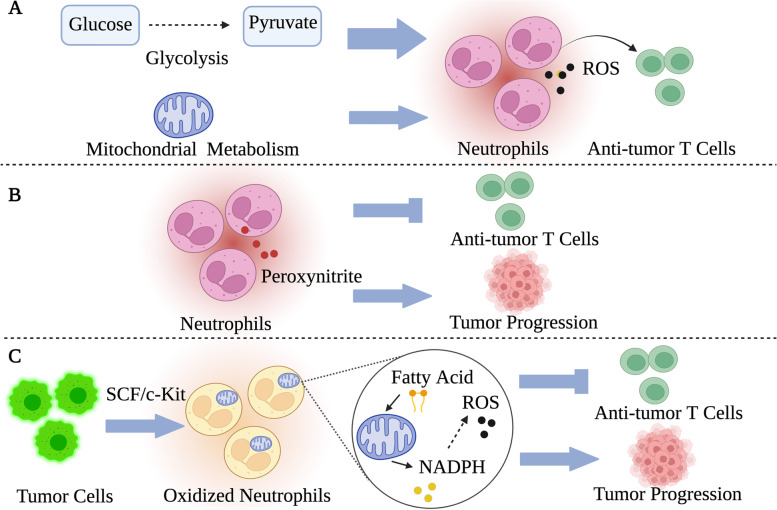Fig. 2.
The affection of metabolic alterations of neutrophils on anti-tumor immune cells. In the past, glycolysis was considered as the main metabolism supporting immunologic function in neutrophils, while mitochondrial metabolism was less relevant to immunologic function. Recently, it is found that tumor cells can induce oxidized phenotype of neutrophils through the SCF/c-Kit signaling. Oxidized neutrophils undergo metabolic reprogramming and depend on fatty acid metabolism from mitochondria to increase ROS level and promote tumor progression. Tumor-associated neutrophils also express iNOS to induce the production of peroxynitrite, which damages anti-tumor T cells. Components in Fig. 2 are drawn using tools from Biorender.com

